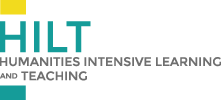In the last few years, we have seen a resurgence of minority activisms, ranging from Black Lives Matter to the Me Too movement, from Standing Rock to Puerto Rico, [...]
Anti-Racist Feminist Digital Humanities
Warning: Undefined variable $page_object in /home/dhtraining/public_html/hilt/wp-content/themes/hilt-child/archive-hilt_course.php on line 50

